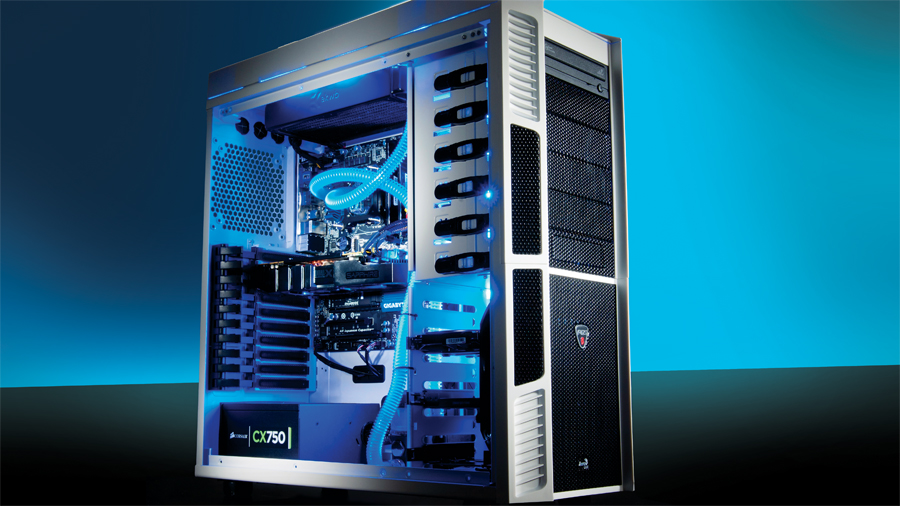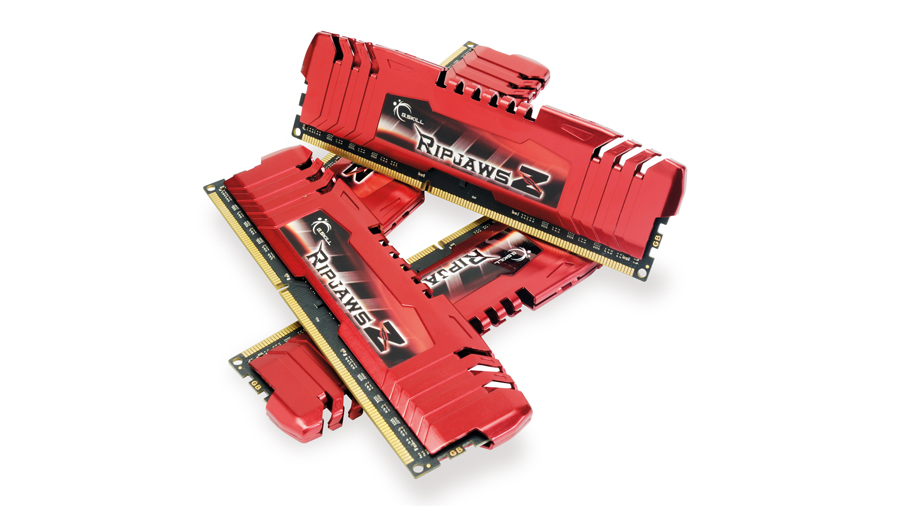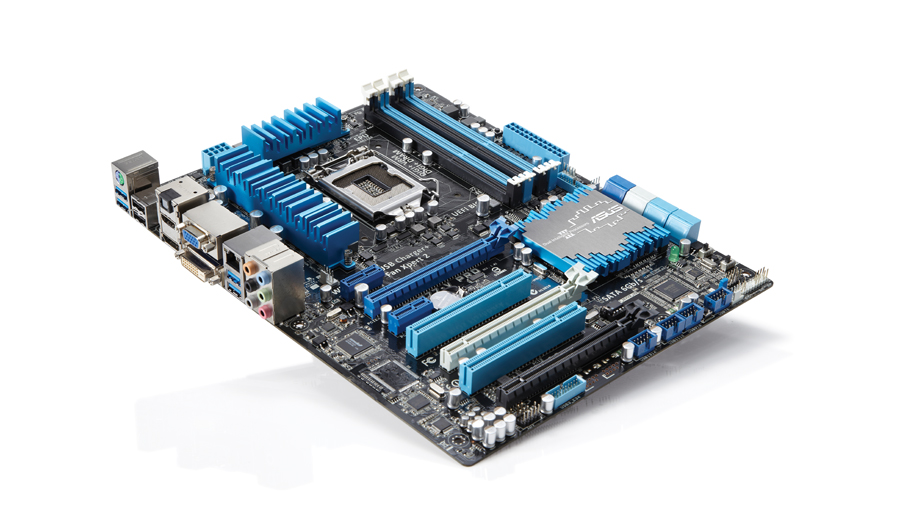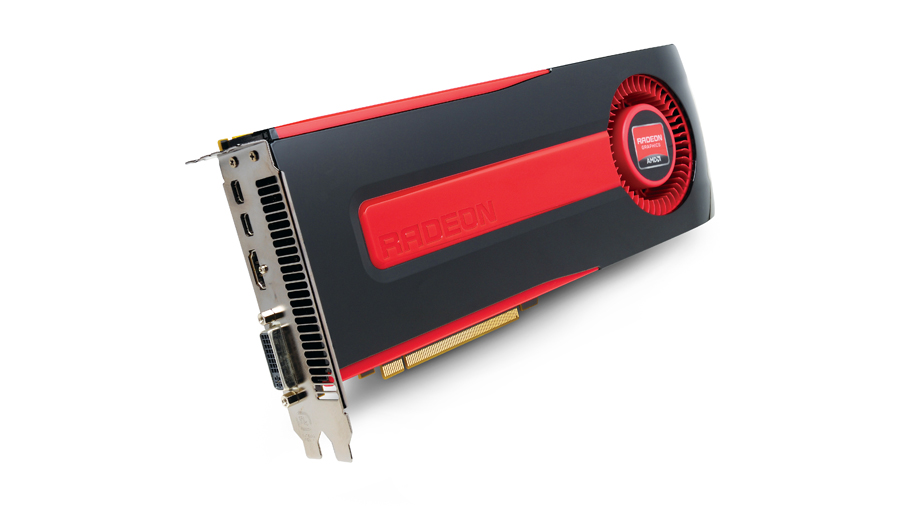Best gaming PC for £1,000: 9 reviewed and rated
The top gaming machines we could find for £1,000

There was a time when you could save a fortune by putting together the components yourself. Nowadays though, you wont be saving as much as you think. That's especially true if you start shopping around for the best prices; picking your components from a variety of online retailers is soon going to add a lot of shipping costs onto the final bill.
So putting your faith in a system integrator (SI) to build you a full-on gaming rig is no longer simply the route of the lazy PC gamer, and it will save you a lot of sleepless nights and frustrated days debugging a DIY build.
You still have a full range of customisation options, from CPU to GPU right through to chassis and other extra goodies like TV tuners.
We got nine of the top system integrators in the country to build us a gaming PC with a budget of £1,000 all-in. That includes the base unit itself, with Windows pre-installed so that you can pull it straight out of the box, plug in and play.
We've left peripherals out of our tests, so none of these machines come with monitors, or mouse and keyboard sets. We figured most people would already have their preferred devices from previous machines. We also really wanted to see what the different SIs deemed the most important parts to spend their £1,000 budget on.
Did they go for a flashy chassis? Did they spend as much as possible on the GPU hoping to hit the highest frame rates? Did they opt for an expensive SSD? In fact, what the SIs left out was sometimes as important as what they included. So, which SI nailed it, and which thought what every gamer really wanted was a Blu-Ray drive?

There are few things in geek life as satisfying as unwrapping a brand new component from its box. Opening a whole brand new PC then, with all those lovely new components sitting happily inside, eager to please you with silky-smooth frame rates and lightning-fast storage, is a total techgasm.
Sign up for breaking news, reviews, opinion, top tech deals, and more.
But why would you spend the money getting someone else to put your machine together when you've got all the know-how to create one yourself? Well, times have changed.
It used to be as much about saving money as it was about customising your own personal PC build, with maybe a little self-satisfaction at being able to say you did the whole job yourself, but the various system integrators out in the wild can offer you some compelling arguments as to why they should be the ones to make your rig for you.
Lets start by looking at the main argument that has always been brought to bear in the system integrator vs home build battle: price.
There used to be a serious premium added onto the bill of parts to cover the labour and bug-fixing that was a necessary part of any PC build. These days though, PC building is more or less like putting together an expensive and rather technical Lego set - and as any parent out there knows, modern Lego sets can get really technical. Okay, I guess it's pretty transparent that I'm talking about my own Star Wars Lego collection here.
Still, the fact remains that PC components are no longer the finicky parts they once were. There are no jumper switches any more, and you can generally boot fresh into a Windows install without going into the BIOS at all. Things just work now, and if they don't, most of the time it's a simple case of re-seating parts (we're looking at you, Mr GPU and Lady RAM) until they do. Otherwise it's just a relatively quick RMA away.
So system integrators can no longer claim exorbitant prices just for the pleasure of building your rig, and the sheer amount of competition out there in this space also means they can't afford to price themselves out of the market. And who wins in this competitive market? We do!
Made to measure

The price argument then is one we can pretty much discount (teehee). You will still be able to search around and find slightly cheaper components, which will total up to a little less than the price of a full build, but generally the savings will be negligible - especially up against the possibility of terrible frustration in trying to figure out why your build has gone wrong.
If you're shopping around you'll be ordering from different retailers and the extra shipping costs on top can start adding up. It also means that if something does go wrong you've actually got someone else to blame if you go down the SI route.
But what of customisation? We're not talking here of the custom case crowd with their Leela-from-Futurama inspired designs (look it up - it's truly disturbing). Those guys ain't ever going to a system integrator, except for a job.
What we're really talking about is being able to choose the exact components you want to go into your final machine. Again, we have to come back to the sheer number of competing system integrators out there - chances are you'll be able to find the exact specification you're after already on offer, pre-built and ready to go. If not, most SIs will offer a wide range of customisation options as you go through the process of ordering your machine.
If you're not the most technically-minded of buyers, this also takes any of the worry about picking components out of the equation. You don't have to be concerned about which components work with which others if you're pulling them from a system integrator's pre-picked drop down menu.
Can't get no satisfaction

The one thing that the SIs can't hope to replicate though is the sense of achievement born of putting together your own PC from scratch. The first time it breezes through a stress test, or the first time you boot your favourite game, or even just the very first time you get a successful POST screen will give any of us happy geeks a thrill.
There's also the masochist in me, who relishes the prospect of finding a solution to any bugs he comes across. But if the thought of bug-fixing a machine you've spent mucho moolah putting together leaves you in a cold sweat, the SI will take much of that worry out of the equation too.
Most builders will include a burn-in period where they test the stability of the components, and any overclocking that has been undertaken on any of the parts. This will usually catch any errors before the rig even gets to your desk.
You don't have to drop a grand to pick up a decent machine from an SI, though. The first full PC I ever bought after joining PCF, all those years ago, was a £500 CyberPower machine. By tweaking the spec I was able to put together a machine that matched my modest means and was targeted at what I use my PC for the most: gaming.
Shop around and you can uncover some bargains - especially if you start looking at last generation parts. A lot of the system integrators are still offering Nvidia Fermi cards at decent prices.
So how do you choose a system integrator to go to? Well, we've set nine of the top system integrators in the UK a challenge to put together the best £1,000 gaming PC they can. Each of them has built something a little different and where they have spent the money, and how they have assembled their rigs, should give you a good idea which SI should get your cash.
Whether it's lightning-fast boot times, eye-popping gaming frame rates or the peace of mind of a long-lived warranty, one of these rigs could be for you.